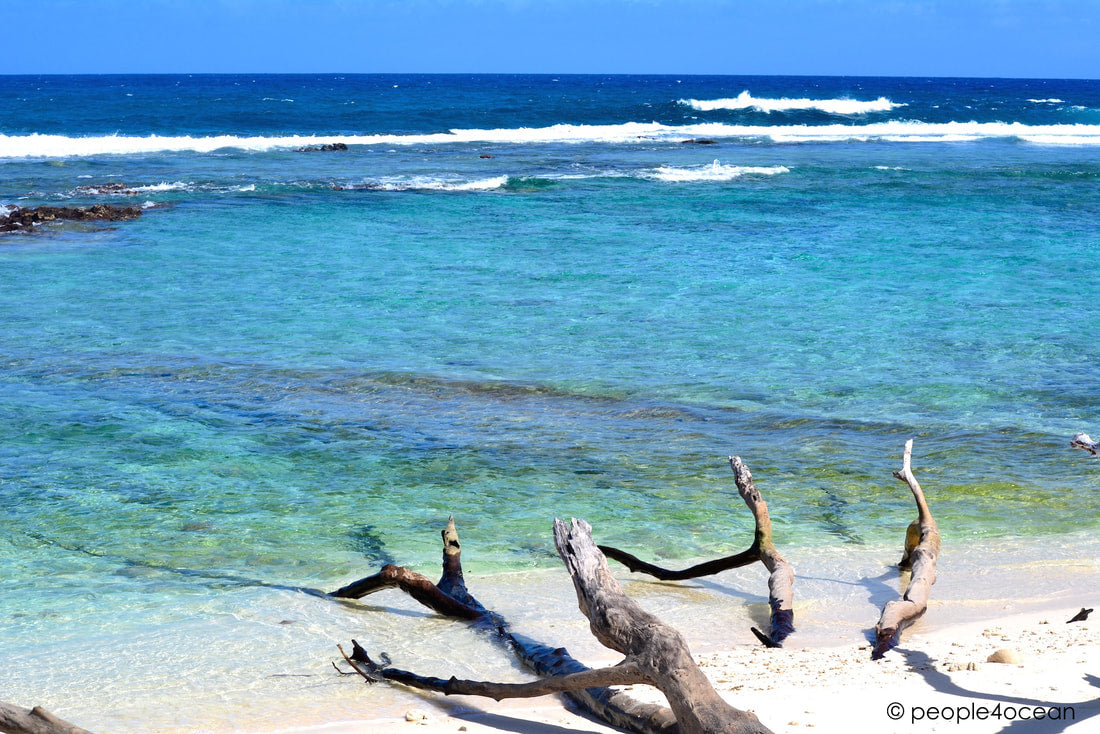
On this day two years ago, we were stranding on the white sandy beach of Cousin Island, a tiny piece of tropical heaven in the Republic of Seychelles.
Committing for a 2-months volunteering experience, we were determined to make the most of our time on “Cousin” as the locals call it. Nature Seychelles – the conservation NGO managing the island – was running a volunteer program at the time, offering training in island conservation. This tiny speck of land would attract people of all ages and backgrounds: from bird-lovers to engineers, journalists or lost hippies in search of wholesome life experiences... As marine biologists, we were a little skeptical about spending the next 8 weeks monitoring land-birds, seabirds, reptiles and pulling out invasive plant species. But we quickly realized we had underestimated the island.
Cousin is home to 5 endemic Seychelles’ land-birds and 7 species of nesting seabirds in numbers exceeding 300,000 individuals. Reptiles also thrive on the island including skinks, geckos and the Giant Tortoise of Aldabra. With pristine beaches and a Marine Protected Area, the island is one the most important breeding site in the Western Indian Ocean for Hawksbill Sea Turtles, with over 700 nest records each year. This tropical diversity was made possible by the complete makeover of the island and the eradication of rats. Like coral reefs in the ocean, plants are the foundation of forest ecosystems.... by replacing the pre-existing coconut plantation with indigenous trees Nature Seychelles allowed the local fauna of Cousin to thrive again. And by thrive, I mean I had to watch my step in the forest to avoid stepping on skinks, seabird chicks or baby tortoises!

Cousin has some of the best and worst conditions for photography. I had never been so intimate with wildlife before. Birds had always been high up in trees – making them so hard to photograph – but they were now literally at my feet. I could seat next to the chick of a white fairy tern as long as I pleased...or as long as I could bear the cloud of mosquitos trying to suck my blood through my heavy-rain jacket or my hiking pants! It took a lot of self-control to hold my camera still with five mosquitos on each hand and more on my face...but going through my pictures in the evening, I couldn’t wait to go back the next day! I started considering it a toll the island inflicts on souvenirs... give a little of yourself, you will be allowed to capture the beauty of the island and take it home. Nothing is for free in the jungle!
Our time in the water was of course our favourite part of the day. We were too early in the year for sea turtle nesting season (September to May) but that didn’t keep us from swimming with these friendly creatures every afternoon. Escaping the heat and humidity of the forest, we would jump into the crystal clear waters, getting rid of the sweat from the forest hike and relieving ourselves from the itch of mosquito bites. Sea turtles, rays and sharks would be the highlights of our snorkelling sessions. It was not uncommon to spot several species of sharks in a single swim: white-tip reef sharks, grey reef sharks, nurse sharks and guitar sharks.

Cousin Island now offers a Conservation Boot Camp - a hands-on immersion into island conservation - over year-round 4-week periods. Read more about the CBC on http://www.natureseychelles.org/get-involved/conservation-boot-camp.


Comments (0)
Back to Blog